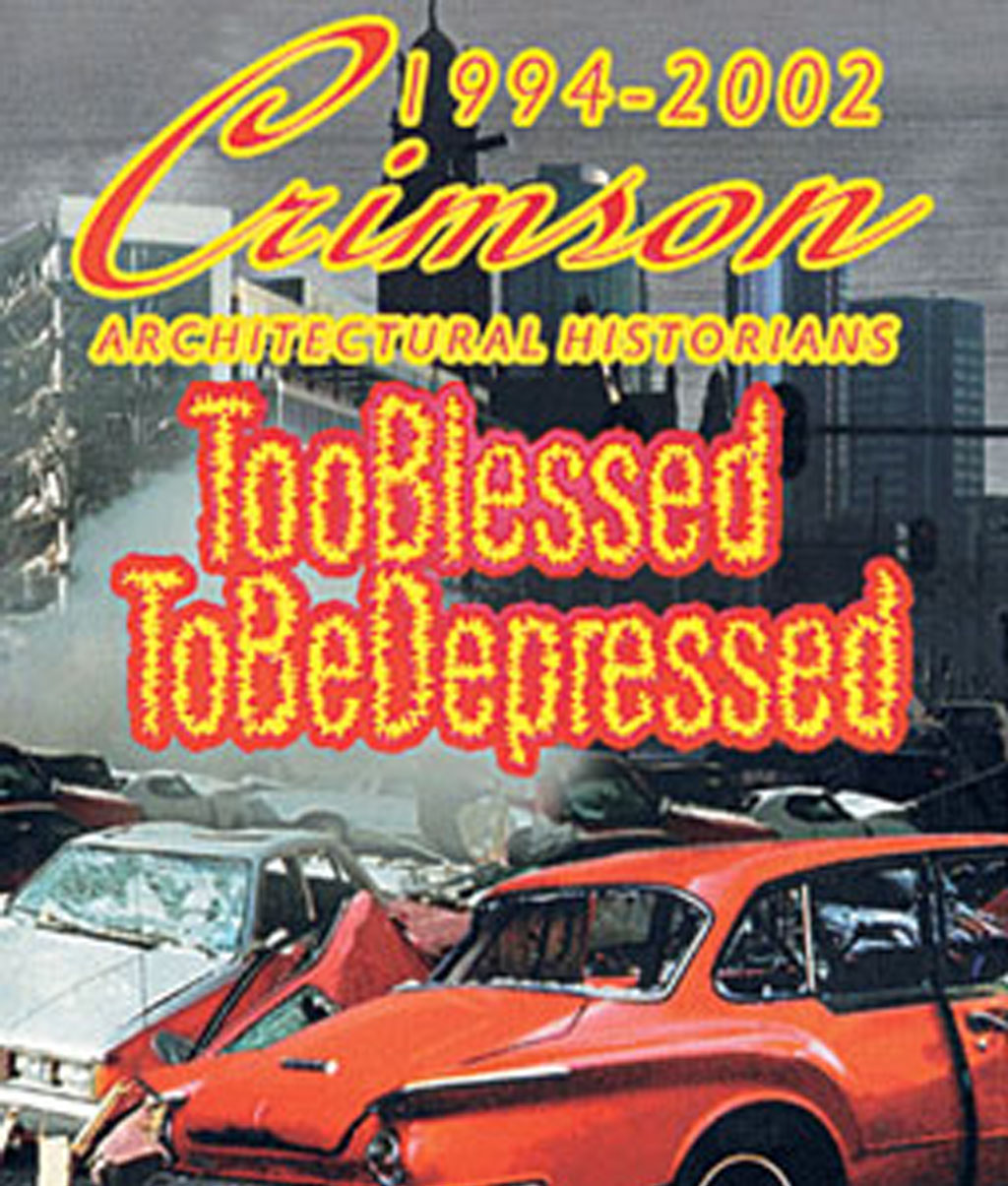14-09-11 // ACROBATIC NARRATIVES – INTERVIEW WITH WOUTER VANSTIPHOUT

Cover of “Too Blessed to Be Depressed” by Crimson Architectural Historians
Bernd Upmeyer and Beatriz Ramo interviewed Wouter Vanstiphout on behalf of MONU magazine. Wouter Vanstiphout is a member of Crimson Architectural Historians in Rotterdam. He is professor of Design and Politics at the Faculty of Architecture of Delft Technical University. The conversation took place at the Crimson Office on September 14, 2011.
Ideology and Branding
Beatriz Ramo: We would like to discuss with you some delicate issues around the current understanding of ideology, or better, the flexibility and malleability that “ideology” has been put through until becoming a brand. From general, large-scale city strategies to much smaller interventions in Rotterdam, examples of success as branding operations but questionable in the transparency and honesty of its message, which is heavily loaded with rhetoric about the public, the social, the participatory, the creative…etc. We are confronted by plenty of these ideologies which turn into highly hypocritical and unethical promotional strategies. How does one judge that? Would you be able to justify them?
Wouter Vanstipout: What I find is that it is difficult to distinguish between authentic social or ecological motivations, and motivations that are used as window dressing or smokescreens for something else. Today, even the most hard-nosed developer, corporate architect or neoliberal politician uses language of community and sustainability to the extent that there is nothing on the surface you can disagree with.
But I also resist accusing people, especially young offices, of hypocrisy; it is a very fine line and we cannot generalize. We, and scores of others, also had some criticism from BAVO when we did this regeneration project in Hoogvliet some years ago. They are very much into hardcore left and Marxist theories. They have an endless repertory of accusations of hypocrisy; it comes very easy to them because of their complete lack of ambition to actually change things, or be helpful in any way. Their position is interesting on an academic level – I’ve heard it say – but is in the end totally academic and the opposite of political.
[…]
Bernd Upmeyer: Do you think this is representative for the architects of this moment?
WV: This and many other similar hybrids of guerilla development and corporate development, is representative for the ambiguity, and slipperiness of the current situation for young, so-called experimental offices. But I will not dismiss systematically the whole social or participatory agendas. Because whether we like it or not, the social aspect of architecture and planning is the only reason for its existence; there is nothing but society; and architecture – and planning’s – biggest problem is its enormous democratic deficit; the fact that it does not represent the interests of an enormous majority of the population, makes participation of extreme importance.
But in order to claim back the real value of these themes, architects need to develop something that is very rare these days: real, hardcore, suicidal arrogance and the nerve to just once say ‘fuck you and your fucking scam’ to a developer or a municipality that really have nothing good or real to offer, and, of course, the knowledge and the wisdom to distinguish between hopeless situations and ones that offer a glimpse of possibilities. Architects should really stop being so horribly helpful and optimistic all the time…
…the complete interview was published in MONU #15 on the topic of Post-Ideological Urbanism on November 21, 2011.
Title: Acrobatic Narratives – Institutionalized Activism, Poetic Demagogy, and Creative Propaganda
Project: Interview with Wouter Vanstiphout
Date: September 2011
Type: Commissioned interview
Topic: Post-Ideological Urbanism
Organizer: MONU
Status: Published
Publications: MONU #15, P.4-9
Interviewer: Beatriz Ramo, Bernd Upmeyer